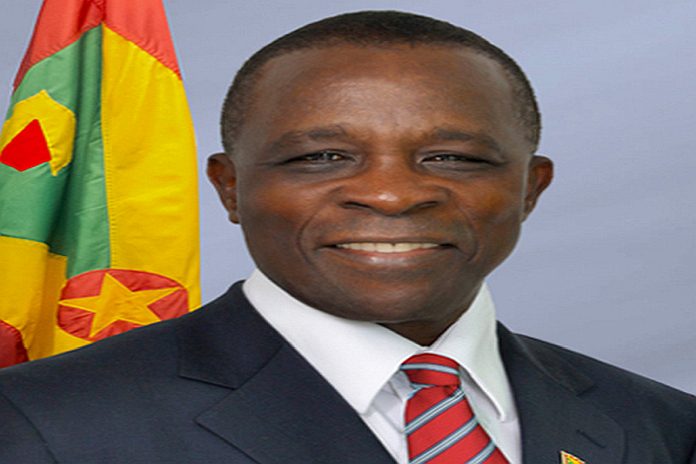By Caribbean News Global contributor
ST GEORGE’S, Grenada, (Gov.gd) — Prime minister, Dr Keith Mitchell, has embarked on a series of meetings with ministers, permanent secretaries and other senior ministry officials, in the wake of the recently announced Cabinet reshuffle, met Thursday with top officials of the ministry of health and charged the team to work together to bring about the best possible health care for the people of Grenada, Carriacou and Petite Martinique.
For the first time, the ministry of health will have two ministers – Nickolas Steele maintains responsibility for health and social security while Delma Thomas will have specific responsibility for hospital services, in addition to being the minister of social development, housing and community empowerment.
Dr Mitchell outlined some of his expectations given the new construct of the ministry (will two permanent secretaries) but he welcomed feedback and suggestions from the health officials.
“The change is a bold decision; it can work very well, or it may require further change but what is important is that we cooperate and collaborate to give the new construct a chance to work. Government has a fundamental responsibility to provide the best healthcare possible. If at present, we say we are satisfied with the current level of healthcare, we are doing a disservice to our people. There are weaknesses in the system, and we must be prepared to make the necessary changes to generate the improvements we wish to see. The entire team must make an effort so that we have the best opportunity at success. This is a bold step in the right direction and collaboration and communication must be seen as critical keys to this success.”
Prime minister Mitchell described healthcare as a matter of life and death, which is often one of the most contentious issues in any country.
“Decision-making must be patient-oriented, transparent, timely and consistent with the overall direction of Government’s policies. People will respect you for making decisions that are fair and balanced. We must plan aggressively, implement efficiently, and problem-solve quickly. Our goal is to build a healthcare system that is more focused on patient care that is equitable, accessible, affordable and sustainable for current and future generations,” Dr Mitchell said.
All health officials present voiced support for the new direction of the ministry and committed to working together to achieve the desired outcomes.
Minister Steele said the approach is revolutionary and encouraged the team to take both individual and collective responsibility to make it work. Minister Thomas promised to bring her passion and drive to the area of Hospital Services and to be a champion for improvement.
Improved customer service and communication were among the areas cited for much- needed improvement. It was noted that the majority of complaints received focused on these areas, rather than the actual medical care provided to patients.
The issue of adequate staffing was also discussed, and the prime minister suggested that this be addressed through service contracts rather than bloating the public service, explained: “We have to consider the holistic development of the system. This is not only about the needs of one particular ministry; it is not about politics; it is about good management practices that help to ensure good governance and long-term sustainability of the entire system.”
Meanwhile, Grenada’s national sustainable development plan 2020-2035 will be the anchor for the country’s 2021 budget, which will be presented later this year.
Addressing participants in a national consultation to garner public input for the 2021 budget, Dr Mitchell said:
“We need to look at the policies, projects and programmes with the greatest potential in this period that would drive the recovery. This would cut across several areas, including agriculture, construction, manufacturing, tourism, education, and ICT. We also need to look at what opportunities that have been created by the crisis and ensure that we seize those opportunities to boost the recovery.”
“We must continue to invest towards achieving a healthy population and a well- educated citizenry taking into account the new realities ushered in by COVID-19. We must continue to work toward empowering our poor and vulnerable as well as other disadvantaged groups.”
“Over the years, we have made steady progress in this area, but much more is required. This pandemic has underscored the importance of this policy imperative. We must continue our work in this area to build resilience to not only natural disasters and climate change, but also public health shocks, such as the current pandemic.”





